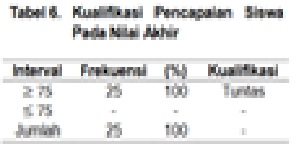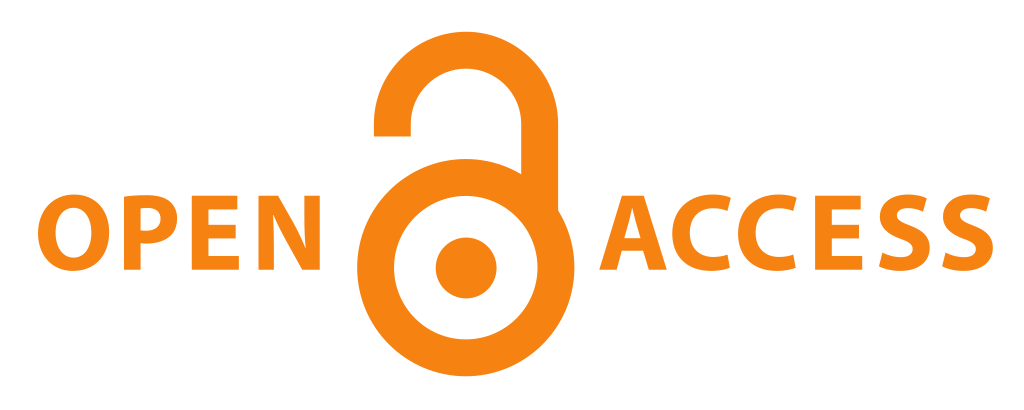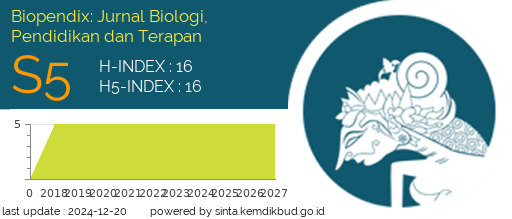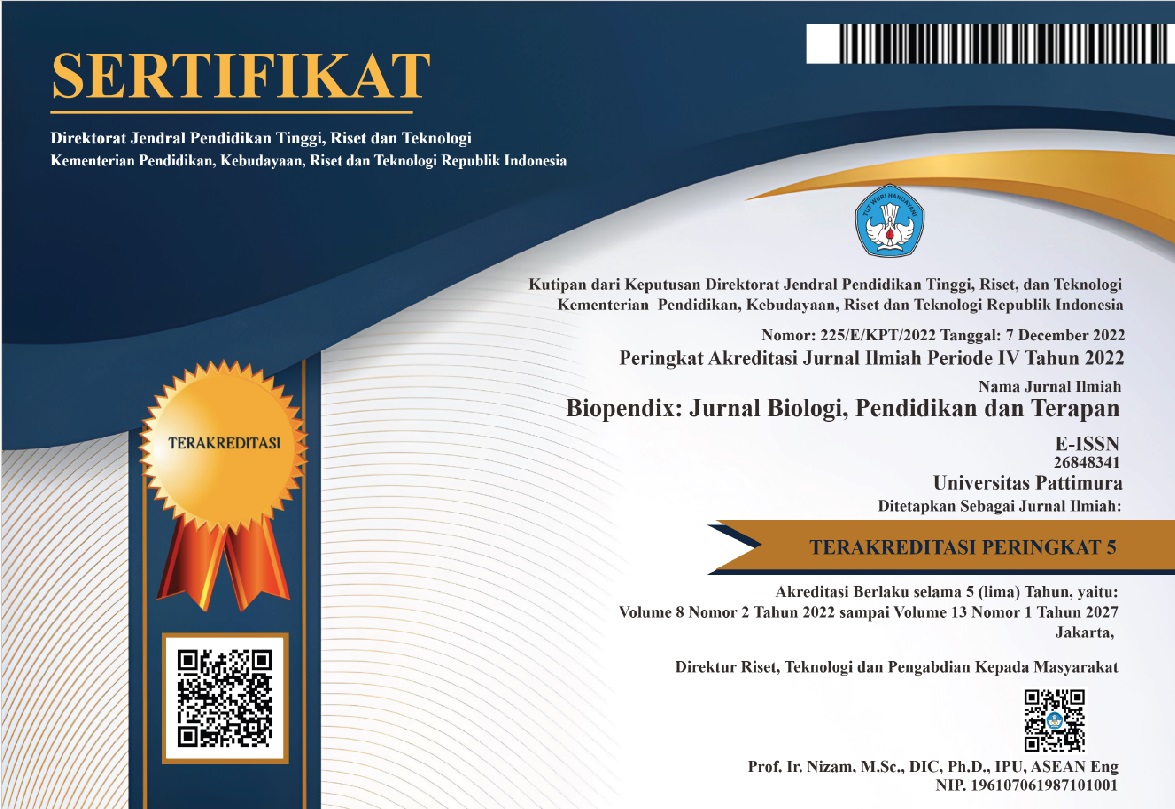UPAYA PENINGKATAN HASIL BELAJAR BIOLOGI MELALUI MODEL PEMBELAJARAN SIMAS ERIC PADA SISWA SMP NEGERI SATU ATAP KAIRATU KABUPATEN MALUKU TENGAH
Abstract
Background: The use of appropriate learning models, is an alternative to overcome the problem of students' low absorption of lessons, in order to improve the quality of teaching. SIMAS ERIC learning model (Skimming, Mind Mapping, Questioning, Exploring, Writing, and Communicating) is a learning model that helps teachers train students to plan learning, monitor the learning process, and evaluate student learning outcomes. This study aims to determine the implementation of SIMAS ERIC (Skimming, Mind Mapping, Questioning, Exploring, Writing, and Communicating) learning models to improve biology learning outcomes in eighth grade students of one-roof state junior high school, Kairatu.
Method: The research design used was descriptive research. Research subjects were 25 garde VIII students. Data on biology learning outcomes are obtained through pre-test and post-test, observation to observe cognitive, affective, and psychomotor abilities.
Results: The average achievement score obtained at the final value is 85.23%.
Conclusion: There is an increase in student learning outcomes shown through the results of formative tests after being taught breathing system material in human beings with the application of the SIMAS ERIC learning model (Skimming, Mind mapping, Questioning, Exploring, Writing, Communicating)
Downloads

Authors who publish with this Journal agree to the following terms:
- Author retain copyright and grant the journal right of first publication with the work simultaneously licensed under a creative commons attribution license that allow others to share the work within an acknowledgement of the work’s authorship and initial publication of this journal.
- Authors are able to enter into separate, additional contractual arrangement for the non-exclusive distribution of the journal’s published version of the work (e.g. acknowledgement of its initial publication in this journal).
- Authors are permitted and encouraged to post their work online (e.g. in institutional repositories or on their websites) prior to and during the submission process, as it can lead to productive exchanges, as well as earlier and greater citation of published works




 2
2






